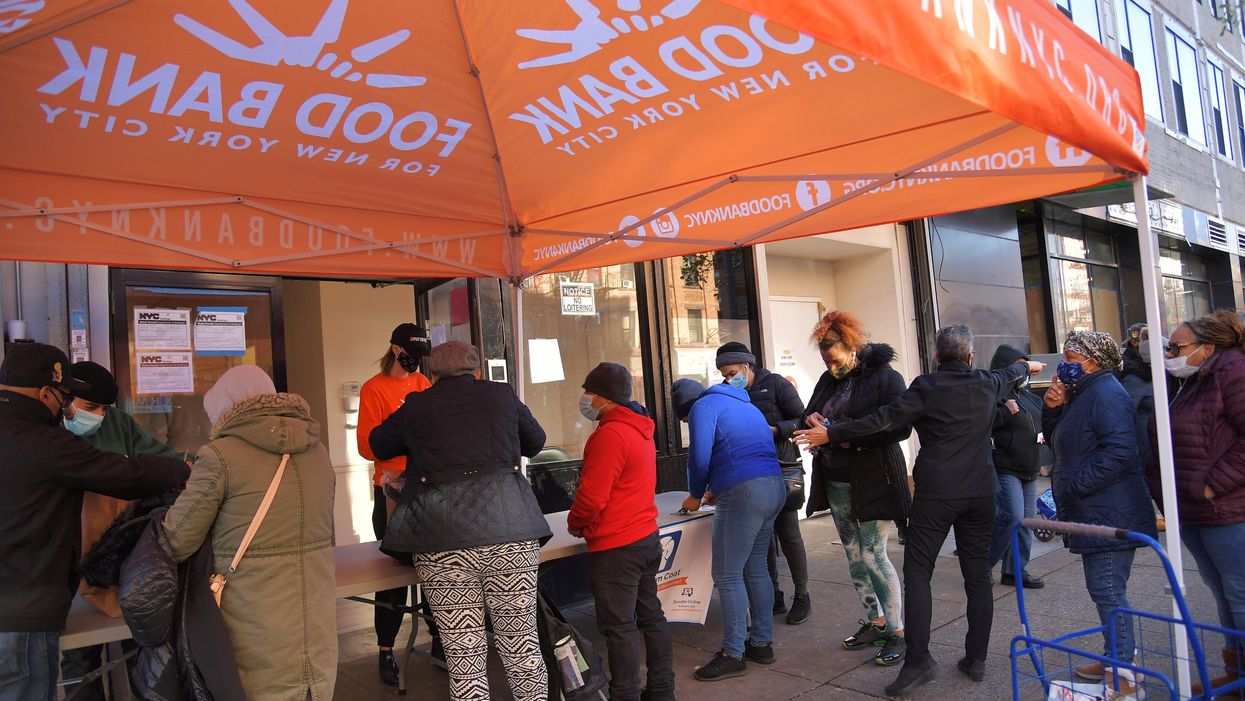Leighninger is vice president of public engagement and Moore-Vissing is associate director of national engagement at Public Agenda, a nonpartisan research and public engagement organization dedicated to strengthening democracy and expanding opportunity for all Americans.
The 2020 election was a painful and divisive experience for most Americans. Now that it is over, it can be a turning point for our democracy.
Americans did their civic duty: Both Joe Biden and Donald Trump broke the previous record for the total number of votes cast for a presidential candidate. Huge numbers of people care about the future of their country, and that fact is one that we can build on.
People agreed, even before the presidential campaign began, that American democracy was in trouble. Our trust in public institutions has been on the decline for some time, along with our trust in one another. Our research and public engagement work have shown, though, that there are areas of alignment and a willingness to collaborate across political, racial, religious, cultural and other barriers. These moments exist, even if the dominant narrative says otherwise.
The coronavirus pandemic itself has built some community connections, through acts of civic grace as simple as bringing groceries to elderly neighbors. But while acts of civility do help, real change comes by building common ground and enacting democratic reforms at both the local and national levels of our public life.
Other parts of the world, for example Northern Ireland and South Africa, have emerged from even more divisive and painful experiences. If peaceful pluralism is possible in those places, it should be possible here.
The aftermath of the election gives us a chance to start to rebuild democracy and unite a divided nation at both the local and national levels. In some places, people are ready to embrace the goal of reconciliation; in others they are not. Recognizing this, we can still find things for people to work on together. Here are three possibilities: encouraging and supporting collaborative volunteerism, helping citizens find common ground on important policy questions and adopting democratic reforms that have systemic impact to restore trust and foster respect.
Service: Volunteerism is a low-stakes way to bring people together across their divisions. There will be a lot of work to do in the coming months, including supporting our health care workers and staffing food banks. These kinds of local public services can be inspired, coordinated and supported nationally, especially through digital tools. We can use the aftermath of the election to frame volunteerism as a way to celebrate both difference and unity — "We may be different, but we can all work together to make our communities stronger" — or the message can be a simple appeal to help those in need during an ongoing national emergency.
Deliberation: Research shows Americans actually do share common ground on many policy questions and are capable of building more of it. The key is to engage citizens rather than just leaving policy discussions to our legislators. There are many pathways to convening members of the public so they can participate in important decisions in meaningful, deliberative ways. This is particularly true at the local level; for instance, we can engage people in public decision-making and problem-solving to help their communities rebound economically from the pandemic.
Reform: The most fundamental problem in our current democracy is that the systems for public engagement aren't working for people. Citizens want more of a say in decisions that affect them, more choices and more access to information. They generally don't get any of those things in the typical public meeting. In this day and age, we have the tools to inform, connect and gather input from millions of people, but most of the official opportunities to engage, at every level of government, are the same ones that have been in place for decades.
These are only examples of many types of practices and reforms that can find common ground and help us strengthen engagement. Our Yankelovich Democracy Monitor research tells us that Americans support a range of reforms that would give them greater voice and a more equitable, collaborative relationship with their governments.
We can rebuild trust by giving people stronger roles in governance locally, as well as nationally. Again, these efforts can be described as ways to increase civility, but they don't have to be — the important thing is that they enable civil, productive decision-making and problem-solving.
All these steps represent areas of agreement among a large and diverse cross-section of Americans. In all three, there are strategies that can help us achieve the kind of democracy we need right now, given the problems before us. In all three, there are practices and reforms that can help us figure out what kind of democracy we want to build.
Abraham Lincoln faced a similar but far more painful moment in our history when he gave his second inaugural address. Through service, deliberation, and democratic reform, he said, we can find ways to lead our diverse country toward what he would call a "just and lasting peace."



















